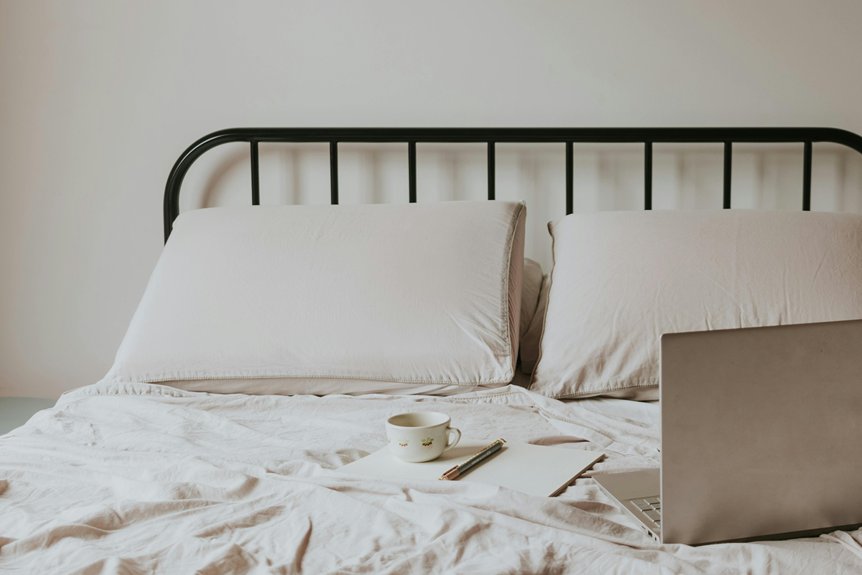
When it comes to picking the right sleep tracker for your lifestyle, it's essential to start with an understanding of your specific sleep needs. You might want to monitor various sleep stages or track your heart rate during the night. But how do you decide which features matter most? And what about your budget? These questions are crucial as you explore options that can seamlessly integrate into your daily routine. Let's uncover the answers.
Understanding Your Sleep Needs
How well do you really understand your sleep needs? Knowing this is crucial before choosing a sleep tracker. Everyone has unique requirements, influenced by age, lifestyle, and health.
Are you a light sleeper, or do you hit deep sleep easily? You might need more hours if you're active or under stress. Aim for consistency; going to bed and waking up at the same time helps regulate your body's internal clock.
Pay attention to how you feel after different sleep durations. If you wake up refreshed, you're likely hitting your optimal sleep level. Conversely, if you feel groggy, it's a sign you need to reassess.
Understanding your sleep patterns lays the foundation for finding a tracker that truly meets your needs.
Features to Look For in a Sleep Tracker
When selecting a sleep tracker, it's essential to consider the features that align with your specific needs. Look for ones that monitor various sleep stages, like light, deep, and REM sleep, so you can get a comprehensive view of your sleep quality.
Heart rate monitoring can provide additional insights into your overall health. You might also want a tracker with smart alarm functions that wake you during lighter sleep phases, making it easier to rise refreshed.
Consider battery life—long-lasting models reduce the hassle of frequent charging. Lastly, ensure compatibility with your smartphone or other devices to access sleep data conveniently.
These features can significantly enhance your understanding of your sleep patterns and overall well-being.
Integrating Sleep Tracking With Your Daily Routine
After selecting a sleep tracker that meets your needs, the next step is integrating it into your daily routine.
Start by setting a consistent bedtime and wake-up time, which helps your tracker gather accurate data. Make it a habit to charge your device during the day so it's ready for use at night.
Use any accompanying apps to log daily activities like caffeine intake or exercise, as these can impact your sleep quality.
Review your sleep data regularly to identify patterns and make adjustments. Share your findings with a healthcare professional if you have ongoing sleep issues.
Budget Considerations When Choosing a Sleep Tracker
What's your budget for a sleep tracker? Knowing this upfront can help you narrow down your options.
Sleep trackers range from budget-friendly models around $30 to high-end devices exceeding $200. Consider what features matter most to you—basic tracking might suffice if you just want to monitor your sleep cycle.
However, if you're after advanced features like heart rate monitoring or sleep coaching, be prepared to spend more. Look for sales or refurbished models if you're on a tight budget; you can often find great deals.
Conclusion
Choosing the right sleep tracker can significantly improve your sleep quality and overall well-being. By understanding your specific sleep needs, identifying essential features, and considering how the device fits into your daily routine, you can make an informed decision. Don't forget to factor in your budget to find a tracker that meets your needs without breaking the bank. With the right sleep tracker, you'll gain valuable insights and take meaningful steps toward better sleep.
Sleep Trackers & Monitors









![The Apple Watch SE (2nd Gen) [GPS 44mm] features a midnight aluminum case with an ink sport loop, digital display, large tan numbers and white hands, plus fitness and sleep tracking, crash detection, heart rate monitor, and is carbon neutral.](https://tranquilzzz.com/wp-content/uploads/2025/04/81KaF0L1DwL._AC_SL1500_-500x595.jpg)




